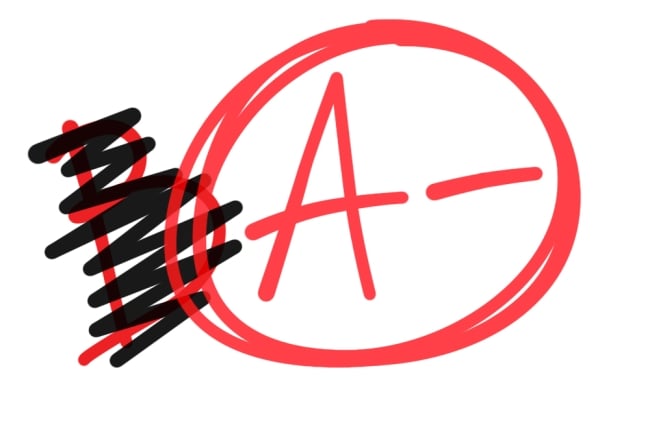You have /5 articles left.
Sign up for a free account or log in.

Photo illustration by Justin Morrison/Inside Higher Ed
“Americans Are Losing Faith in College Education,” proclaims The Wall Street Journal; “College Degrees Could Become Obsolete,” notes Forbes. These are just two in a flurry of headlines in recent years signaling the eroding legitimacy of the college degree. The reasons, we suggest below, are multidimensional, from the surfeit of debt-saddled graduates without marketable skills to concerns over rampant grade inflation.
Despite widespread diagnoses of higher ed’s woes, little attention has been paid to the views of professors themselves. With 78 years of collective experience among us, at 11 public and private universities, my colleagues and I carried out a national survey of tenured professors. Do faculty members across the United States admit to inflating grades and watering down their courses? If so, what are their reasons for doing so? As we were interested as much as possible in the “typical” university experience, we surveyed faculty at large, public universities of average selectivity. We chose the departments of English, math and sociology to represent the humanities and hard and soft sciences and received 223 responses from tenured professors.
Our results, published in the journal Higher Education Politics & Economics, are sobering. Given space constraints, I’ll report here on just a dozen findings from our 48-item questionnaire:
- Forty-eight percent of tenured faculty agree that grade inflation is a serious problem, versus 21 percent who disagree.
- Forty-seven percent agree that academic standards have declined in recent years, versus 27 percent who disagree.
- Thirty-seven percent admit to routinely inflating grades.
- Thirty-three percent admit to reducing the rigor of their courses over the years.
- Twenty-three percent admit to sometimes feeling the four-year liberal arts degree is a “grift.”
To account for their participation in eroding standards, faculty refer to trends in the wider economy and culture that we dub the “broke-woke-stroke” convergence. I’ll return to our (cheeky) mnemonic below, but consider first the following views:
- Seventy-nine percent of tenured faculty agree that “corporatization” is a serious problem in higher education.
- Forty-nine percent affirm that encouraging four-year degrees for all has played a role in declining standards.
- Thirty-eight percent agree that too many students admitted to university today are not intellectually suited.
- Thirty-seven percent agree that student pushback on grades has increased in recent years.
- Forty percent suspect that students are not studying as much as they did in the past.
- Fifty-nine percent affirm playing a more emotionally supportive (if not therapeutic) role with students over the years.
- Forty-four percent affirm that standardized admissions tests are culturally discriminatory, if not racist.
Our takeaway from such responses, supplemented with more than 1,300 voluntary comments, is that professors today face a host of pressures to reduce standards. Foremost among them is corporatization (“broke”), which faculty overwhelmingly identify as a serious problem. Here we see cash-strapped colleges and universities scramble to attract and retain students, whatever their intellectual readiness. The consequences are troubling. Universities eliminate tenure-track positions and engage in an amenities arms race to appeal to students, while faculty face intensified pressure to maintain their program enrollments. Rigorously grading or (worse) failing students only exacerbates their already unsustainable debt, a natural concern of compassionate faculty, while program cuts loom should student “consumers” opt for a less daunting major. This is perhaps the most perverse metric in higher education today—evaluating programs’ health and survival based on the number of graduates rather than rigor and hard-earned excellence.
“Woke” sensibilities also play a role in eroding standards by politicizing student performance disparities, especially by race. While wokeness emerged as heightened advocacy around racial and gender injustices, today the word is used as a pejorative by mostly conservative critics who denounce what they see as a campus climate hostile to the values of meritocracy, free speech and colorblindness. We cite in our article a 2020 statement by the president of Brooklyn College on the “structural obstacles” faced by students of color; the statement references a drive to raise funds for “professional development” for faculty with the “highest racial disparities in outcomes and the highest D/F/W rates.” We cite as well a Boston University teaching guide on the “hidden curriculum,” where the authors suggest it “may not be fair or even valid” to hold marginalized students to such expectations as doing the readings, arriving to class on time, participating in class discussions or using “standard English.” It is not difficult to see how these sensibilities undermine standards. And note the irony: woke faculty members who condemn corporate-minded administrators are their unwitting bedfellows in student social promotion.
Our reference to “stroke” is looser—referring to widely observed generational changes associated with increased student entitlement and fragility. Here faculty members may feel compelled to stroke the egos, as it were, of students viewed as increasingly likely to push back for higher grades or others perceived as too vulnerable to receive stringent appraisals of their work. Widely cited cultural underpinnings include helicopter and overindulgent parenting (“everyone’s a winner”), an accompanying victimization culture (including safe spaces and trigger warnings) and a spirit of “educational romanticism” where all students, whatever their ability, are deemed capable of academic success with enough student support. Faculty’s perception of playing a more therapeutic role with students, whom they often perceive as demanding higher grades for less work, can be understood in this context. Indeed, it is not surprising that student pushback is the main reason faculty in our survey cited for inflating grades.
We take pains to stress that the problems on campuses today are fundamentally structural rather than agential. We are skeptical of blaming “bloated” administrators or “lazy” faculty for the bad incentives in the contemporary economy and culture. We conclude with a quixotic call for renewed civic commitment and public financing of higher education. This strikes us as the only conceivable way to reclaim rigor in the classroom and take pressure off faculty in their grading.
Building the political will for public financing appears fanciful in today’s polarized ideological climate. Yet a key step to fostering trust across political lines is to promote the values of viewpoint diversity and open inquiry in higher ed. Support for organizations like Heterodox Academy and the Foundation for Individual Rights and Expression is vital in this regard. We hope that liberals in the academy will reassert the traditional values of grit and merit. And we hope that conservatives recognize that doing so is increasingly disincentivized in today’s student debt–financed regime.








